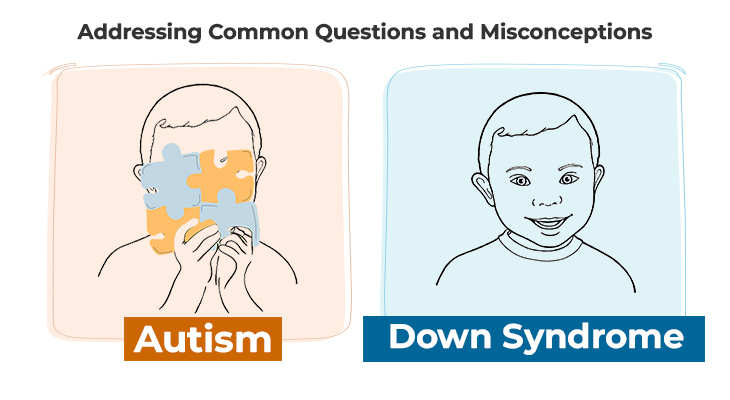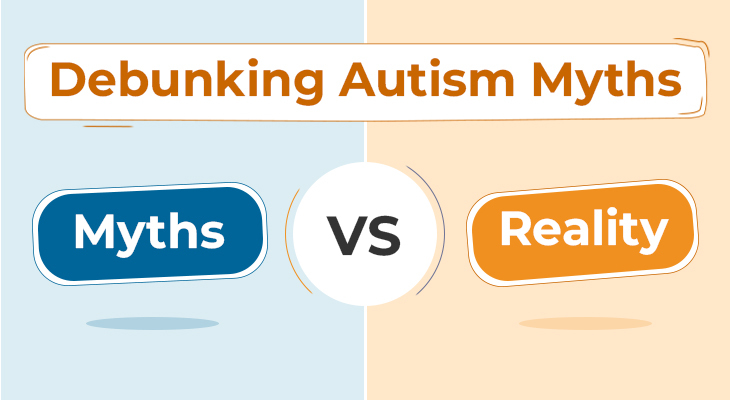
Table of Contents
- Introduction
- The Affordable Care Act (ACA)
- Essential Health Benefits
- State Insurance Laws
- Limitations and Exclusions
- Medicaid
- Private Insurance
- Out-of-Pocket Expenses
- Navigating Insurance Coverage for Autism
- Conclusion
- Did You Know About Folate Receptor Autoantibodies (FRAAs) and Brain Development?
- References
Introduction
Autism Spectrum Disorder (ASD) is a neurodevelopmental condition that impacts communication, social interaction, and behavior. In the context of the recent report of the Centers for Disease Control and Prevention (CDC) that approximately 1 in 36 children in the United States are diagnosed with autism spectrum disorder (ASD), it is imperative to be aware of the insurance coverage in autism. In this blog post, we will explore the insurance coverage for autism.
Between 2019 and 2022, insurance companies were using F84.0 as the primary code to identify Autism Spectrum Disorder (ASD), even if other codes are associated with ASD. There is no information available on any changes to the CPT code for Autism Spectrum Disorder (ASD) after 2022. However, the American Medical Association (AMA) releases updates to the CPT code set annually, so it’s possible that any changes will be reflected in future updates.
The Affordable Care Act (ACA)
The Affordable Care Act (ACA) is a federal law that was enacted in 2010. The ACA requires insurance plans to cover essential health benefits, including mental health and substance abuse disorder services. The law also prohibits insurance companies from denying coverage to individuals with pre-existing conditions, including autism.
Essential Health Benefits
Essential health benefits (EHBs) are a set of ten categories of services that insurance plans are required to cover under the ACA. One of these categories is mental health and substance abuse disorder services, which includes treatment for autism. The EHBs vary depending on the state and the insurance plan. However, all insurance plans must cover the following services related to autism:
- Behavioral health treatment, such as applied behavior analysis (ABA) therapy
- Prescription drugs, such as medications used to treat autism symptoms
- Rehabilitation and habilitation services, such as speech therapy and occupational therapy
- Diagnostic services, such as autism assessments
State Insurance Laws
In addition to the ACA, many states have their own insurance laws that require insurance companies to cover autism treatments. These laws are known as autism insurance mandates. As of 2021, 50 states and the District of Columbia have passed autism insurance mandates. The specifics of these laws vary by state but generally require insurance companies to cover the following:
- Diagnosis and assessment of autism
- Behavioral health treatment, such as ABA therapy
- Prescription drugs, such as medications used to treat autism symptoms
- Rehabilitation and habilitation services, such as speech therapy and occupational therapy
You can access the American Speech Language Hearing Association (ASHA)’s comprehensive webpage on the latest applicable laws in this weblink
https://www.asha.org/advocacy/state/states-specific-autism-mandates/
Limitations and Exclusions
Autism insurance mandates in many states have been instrumental in improving access to treatments for individuals with autism. These mandates require insurance companies to cover the diagnosis and treatment of autism, including behavioral health treatment, prescription drugs, and rehabilitation and habilitation services. Some states also have autism-specific Medicaid waivers that provide additional coverage for autism treatments.
While insurance coverage for autism has improved significantly, there are still some limitations and exclusions to be aware of. Insurance plans may have limits on the number of therapy sessions or the total amount of coverage for autism treatments. Some insurance plans may also exclude coverage for certain types of treatments, such as sensory integration therapy or dietary interventions. Families may also face out-of-pocket expenses for deductibles, co-pays, and co-insurance.
Medicaid
Medicaid is a federal-state program that provides health coverage to low-income individuals and families. Medicaid covers essential health benefits, including mental health and substance abuse disorder services. In addition, some states have autism-specific Medicaid waivers that provide additional coverage for autism treatments. The specifics of these waivers vary by state, but they may cover services such as ABA therapy, speech therapy, and occupational therapy.
Private Insurance
Private insurance plans are offered by employers, unions, and other organizations. As mentioned earlier, private insurance plans are required to cover essential health benefits, including mental health and substance abuse disorder services. In addition, many private insurance plans offer autism-specific coverage. However, the specifics of this coverage vary by plan. Some private insurance plans may have limitations or exclusions for autism treatments.
Out-of-Pocket Expenses
Even with insurance coverage, families may still have out-of-pocket expenses for autism treatments. These expenses may include deductibles, co-pays, and co-insurance. Some families may also choose to pay for treatments that are not covered by insurance, such as dietary interventions or alternative therapies.
Navigating Insurance Coverage for Autism
Understanding insurance coverage for autism can be complex and overwhelming for families. Here are some tips on how to navigate insurance coverage for autism:
1. Understand Your Insurance Plan:
Families should understand their insurance plan and what it covers. They should review their insurance policy or summary of benefits to understand the specifics of their coverage for autism treatments.
2. Talk to Your Insurance Provider:
Families should talk to their insurance provider to clarify any questions or concerns they may have about their coverage. They can also ask their insurance provider for a list of in-network providers who offer autism treatments.
3. Advocate for Your Child:
Families should advocate for their child’s needs and treatment options. They can work with their healthcare provider to develop a treatment plan that is best for their child and communicate with their insurance provider to ensure their child receives the necessary coverage.
4. Seek Additional Support:
Families can seek additional support from advocacy organizations or support groups. These organizations can provide information, resources, and support to help families navigate insurance coverage for autism.
Conclusion
It is important for families to understand their insurance coverage for autism and advocate for themselves and their loved ones to ensure they receive the necessary treatments. Families should work with their healthcare providers and insurance companies to understand the specifics of their coverage and any limitations or exclusions.
Insurance coverage for autism in the United States has improved significantly in recent years, but there is still work to be done. Families should be aware of their insurance coverage and work with healthcare providers and insurance companies to ensure they receive the necessary treatments. With access to appropriate treatments, individuals with autism can lead fulfilling lives and reach their full potential.
For information on autism monitoring, screening and testing please read our blog.
References
- Centers for Disease Control and Prevention. (2021). Data & Statistics on Autism Spectrum Disorder. Retrieved from
https://www.cdc.gov/ncbddd/autism/data.html - U.S. Department of Health & Human Services. (n.d.). Essential Health Benefits. Retrieved from
https://www.healthcare.gov/coverage/what-marketplace-plans-cover/ - Autism Speaks. (2021). Autism Insurance Mandates. Retrieved from
https://www.autismspeaks.org/health-insurance-coverage-autism - Centers for Medicare & Medicaid Services. (n.d.). Medicaid. Retrieved from
https://www.medicaid.gov/medicaid/benefits/autism-services/index.html - Autism Speaks. (2021). Medicaid Coverage for Autism. Retrieved from
https://www.autismspeaks.org/search?search_api_fulltext=medicaid%20 coverage%20for%20 autism - Autism Speaks. (2021). Private Insurance Coverage for Autism. Retrieved from
https://www.autismspeaks.org/search?search_api_fulltext=private%20insurance%20coverage%20for%20autism




